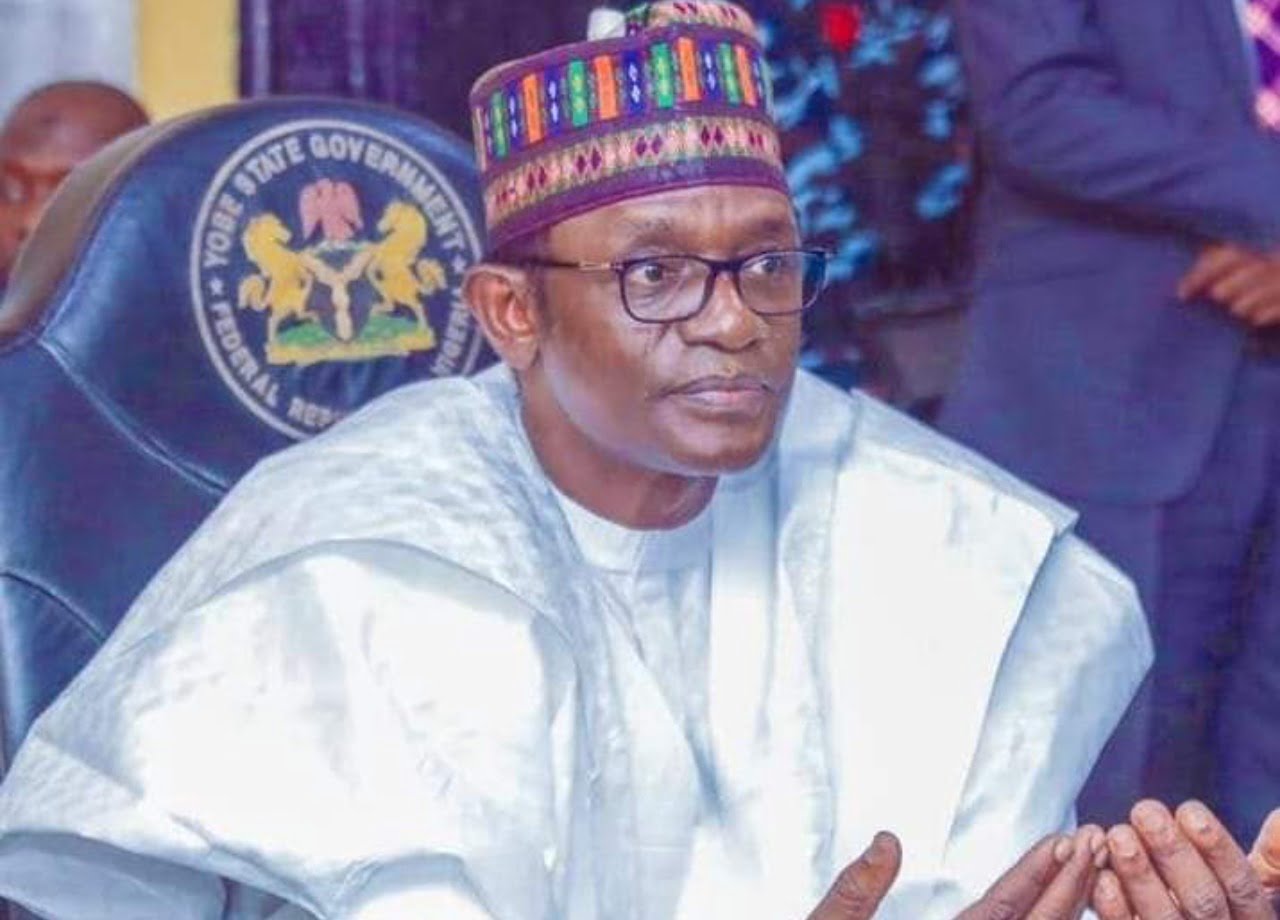Proposal for a canal linking Komadugu Yobe River with Damaturu and non-riverine communities to foster sustainable agricultural development and job creation
Your Excellency Sir,
I write this open letter to you to propose a robust environmental sustainability initiative, which if successfully developed and implemented, will enhance Yobe State’s food security rating. Additionally, it will contribute immensely toward the success of President Bola Ahmed Tinubu’s declaration of a state of emergency on food security in the nation.
Before I go into the details, I would like to thank you and your government for paying ‘green’ attention to agriculture and environmental sustainability in the state. Your government’s launching of a tree planting campaign, sale of fertilizer at subsidised rates and mass animal vaccination are no doubt splendid steps at the right time, in the right direction.
I would like to propose an important initiative for the development and well-being of our dear state, Yobe, in general and Damaturu and other non-riverine communities like Buni Yadi, in particular.
It is recommended that the Yobe State Government seek state and national legislative support to create a canal drawing water from the Komadugu Yobe to Damaturu, the state capital. This canal would serve as a valuable resource for promoting dry-season farming, enhancing food security, stimulating economic development and generating employment opportunities, particularly for the youth.
By establishing the canal, communities in Damaturu and those through which the proposed canal would pass through would have access to water throughout the year, enabling them to engage in agricultural activities even during the dry season. This additional source of water would profoundly impact the agricultural sector by extending the farming season and diversifying the types of crops that can be cultivated. Consequently, this would enhance food production, reduce dependence on seasonal rainfall and improve food security among residents.
Moreover, the establishment of the canal would stimulate economic growth in those parts of Yobe State in particular and in the whole of Yobe in general. With increased agricultural productivity, there would be a surplus of agricultural products that can be processed, stored and exported. This would attract investments in agro-processing industries, creating job opportunities and contributing to the state’s GDP.
Additionally, the availability of water for irrigation would encourage farmers to adopt farming techniques that are more advanced, leading to higher yields and greater economic returns. This is crucial looking at the consequences of the removal of oil subsidy, floating of the Naira in the foreign exchange market and privatisation of the Nigerian National Petroleum Corporation (NNPC) and their impacts on the future of Yobe State’s economy.
Furthermore, the canal project would significantly benefit the youth of Yobe State. As a large portion of the population consists of young people, creating employment opportunities is vital for their well-being and the overall development of the state. The canal project, coupled with agricultural development, would generate a range of jobs in farming, agro-processing, logistics, and marketing. This would not only address the issue of unemployment but also discourage drug abuse, crime and rural-urban migration (especially among the youth), thus fostering the growth and stability of rural communities.
Like other parts of the country, Yobe State is faced with challenges related to poverty and unemployment. Nigeria as a whole has experienced high levels of poverty, with different regions facing varying degrees of economic inequality. Yobe State, being one of the less developed states, has a higher poverty rate compared to some other regions in Nigeria.
Limited job opportunities, lack of proper infrastructure and inadequate access to quality education and skills training contribute to the unemployment issue. The government has been implementing various programmes and policies to address poverty and improve employment prospects in the state.
According to the National Bureau of Statistics (NBS), Yobe is one of the poorest states in Nigeria, with a poverty rate of 72.3 percent of its over 3 million population (which is equivalent to over 2,169,000 poor indigenes of Yobe); and this is the seventh highest in the country. The humanitarian situation in Yobe State is characterised by pockets of severe and extreme levels of poverty in the rural areas and within some urban communities hosting internally displaced persons (IDPs). The unemployment rate in Yobe State is 52.6 percent (which simply means as many as 1,578,000 indigenes of Yobe are unemployed) as of 2020.
Furthermore, according to the Humanitarian Response Report, poverty in Yobe State is associated with a lack of access to essential services, ethnic disparities, low economic development and protracted armed conflict.
To move forward with this initiative, it is crucial to seek both state and national legislative support. Engaging with lawmakers at both levels will ensure that the necessary funding, resources, and legal frameworks are put in place to implement and sustain the canal project. This collaboration will also demonstrate the government’s commitment to prioritising the welfare of Yobe State’s residents, fostering development and promoting long-term economic sustainability.
Furthermore, for sustainable agricultural development and ample job creation, the Yobe State government, under the leadership of Governor Mai Mala Buni, can collaborate with various stakeholders to achieve this lofty goal. These stakeholders can include the Federal Government, the United Nations Educational, Scientific and Cultural Organisation (UNESCO), the United Nations Development Programme (UNDP), the Food and Agricultural Organisation (FAO), the Economic Community of West African States (ECOWAS), African Union (AU) and other regional and global organisations to develop and preserve the Komadugu Yobe River basin.
Here (below), I enumerate some insights on potential collaboration areas:
1. Research and Knowledge Sharing: Collaborating with UNESCO and other research institutions can facilitate studies to understand the ecological dynamics, water resources and biodiversity of the Komadugu Yobe River basin better. Sharing this knowledge can help identify sustainable development approaches.
2. Policy and Governance: Establishing partnerships with the federal government, ECOWAS and AU allows for the alignment of policies and governance frameworks related to water management, agriculture and environmental conservation. This collaboration can help develop comprehensive strategies for the sustainable utilisation of the river basin.
3. Infrastructure and Water Management: Collaborating with relevant stakeholders, including the Nigerian government and UNDP, can support the development of infrastructure projects such as dams, irrigation systems and water treatment facilities. These efforts can enable efficient water management, improve agricultural productivity and enhance the livelihoods of communities within the basin.
4. Sustainable Agriculture and Livelihood: Collaborating with organisations like FAO can assist in promoting sustainable agricultural practices, enhancing food security and improving the livelihoods of local communities. Initiatives such as capacity building, providing access to improved farming techniques and promoting climate-resilient agriculture can contribute to long-term sustainability.
5. Environmental Conservation and Awareness: Engaging with global stakeholders, including UNESCO and international NGOs can help raise awareness about the importance of environmental conservation in the Komadugu Yobe River basin. Collaborative efforts can involve community education programmes, conservation projects and the promotion of eco-tourism to ensure the preservation of the basin’s natural resources.
Through these collaborative efforts, the Yobe State Government, under Governor Mai Mala Buni’s leadership, can work towards the sustainable development and preservation of the Komadugu Yobe River basin, benefiting both the environment and the communities relying on its resources.
Furthermore, Governor Mai Mala Buni, pursuing the creation of a canal to draw water from the Komadugu Yobe to Damaturu holds immense potential for Yobe State. It will support dry season farming, enhance food security, foster economic growth and create employment opportunities for the youth. By seeking state and national legislative support, this visionary project can become a reality, transforming the lives of Yobe State’s citizens and contributing to the state’s overall progress.
Thank you for considering this proposal, Your Excellency Sir.
Adamkolo Mohammed Ibrahim wrote from the Department of Mass Communication, University of Maiduguri

 Join Daily Trust WhatsApp Community For Quick Access To News and Happenings Around You.
Join Daily Trust WhatsApp Community For Quick Access To News and Happenings Around You.
